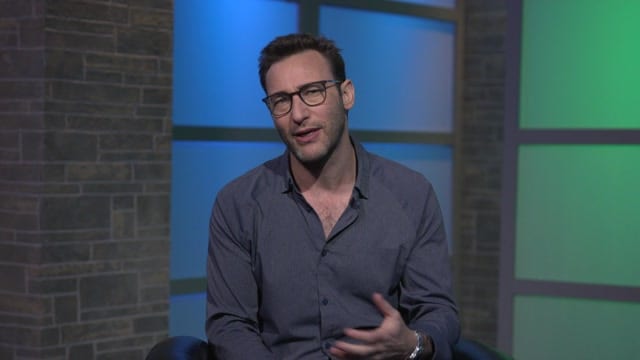
Simon Sinek identifies the secret behind leaders who take healthy risks.

Simon Sinek identifies the secret behind leaders who take healthy risks.

A decade ago, at the end of my first semester teaching at Wharton, a student stopped by for office hours. He sat down and burst into tears. My mind started cycling through a list of events that could make a college junior cry: His girlfriend had dumped him; he had been accused of plagiarism. “I just got my first A-minus,” he said, his voice shaking.
Year after year, I watch in dismay as students obsess over getting straight A’s. Some sacrifice their health; a few have even tried to sue their school after falling short. All have joined the cult of perfectionism out of a conviction that top marks are a ticket to elite graduate schools and lucrative job offers.
I was one of them. I started college with the goal of graduating with a 4.0. It would be a reflection of my brainpower and willpower, revealing that I had the right stuff to succeed. But I was wrong.
The evidence is clear: Academic excellence is not a strong predictor of career excellence. Across industries, research shows that the correlation between grades and job performance is modest in the first year after college and trivial within a handful of years. For example, at Google, once employees are two or three years out of college, their grades have no bearing on their performance. (Of course, it must be said that if you got D’s, you probably didn’t end up at Google.)
Academic excellence is not a strong predictor of career excellence.
Academic grades rarely assess qualities like creativity, leadership and teamwork skills, or social, emotional and political intelligence. Yes, straight-A students master cramming information and regurgitating it on exams. But career success is rarely about finding the right solution to a problem—it’s more about finding the right problem to solve.
In a classic 1962 study, a team of psychologists tracked down America’s most creative architects and compared them with their technically skilled but less original peers. One of the factors that distinguished the creative architects was a record of spiky grades. “In college our creative architects earned about a B average,” Donald MacKinnon wrote. “In work and courses that caught their interest, they could turn in an A performance, but in courses that failed to strike their imagination, they were quite willing to do no work at all.” They paid attention to their curiosity and prioritized activities that they found intrinsically motivating—which ultimately served them well in their careers.
Getting straight A’s requires conformity. Having an influential career demands originality. In a study of students who graduated at the top of their class, the education researcher Karen Arnold found that although they usually had successful careers, they rarely reached the upper echelons. “Valedictorians aren’t likely to be the future’s visionaries,” Dr. Arnold explained. “They typically settle into the system instead of shaking it up.”
This might explain why Steve Jobs finished high school with a 2.65 G.P.A., J.K. Rowling graduated from the University of Exeter with roughly a C average, and the Rev. Dr. Martin Luther King Jr. got only one A in his four years at Morehouse.
If your goal is to graduate without a blemish on your transcript, you end up taking easier classes and staying within your comfort zone. If you’re willing to tolerate the occasional B, you can learn to program in Python while struggling to decipher Finnegans Wake. You gain experience coping with failures and setbacks, which builds resilience.
Straight-A students also miss out socially. More time studying in the library means less time to start lifelong friendships, join new clubs or volunteer. I know from experience. I didn’t meet my 4.0 goal; I graduated with a 3.78. (This is the first time I’ve shared my G.P.A. since applying to graduate school 16 years ago. Really, no one cares.) Looking back, I don’t wish my grades had been higher. If I could do it over again, I’d study less. The hours I wasted memorizing the inner workings of the eye would have been better spent trying out improv comedy and having more midnight conversations about the meaning of life.
If I could do it over again, I’d study less.
So universities: Make it easier for students to take some intellectual risks. Graduate schools can be clear that they don’t care about the difference between a 3.7 and a 3.9. Colleges could just report letter grades without pluses and minuses, so that any G.P.A. above a 3.7 appears on transcripts as an A.
It might also help to stop the madness of grade inflation, which creates an academic arms race that encourages too many students to strive for meaningless perfection. And why not let students wait until the end of the semester to declare a class pass-fail, instead of forcing them to decide in the first month?
Employers: Make it clear you value skills over straight A’s. Some recruiters are already on board: In a 2006 study of over 500 job postings, nearly 15 percent of recruiters actively selected against students with high G.P.A.s (perhaps questioning their priorities and life skills), while more than 40 percent put no weight on grades in initial screening.
Straight-A students: Recognize that underachieving in school can prepare you to overachieve in life. So maybe it’s time to apply your grit to a new goal—getting at least one B before you graduate.
This article originally appeared in the New York Times Opinion Page.
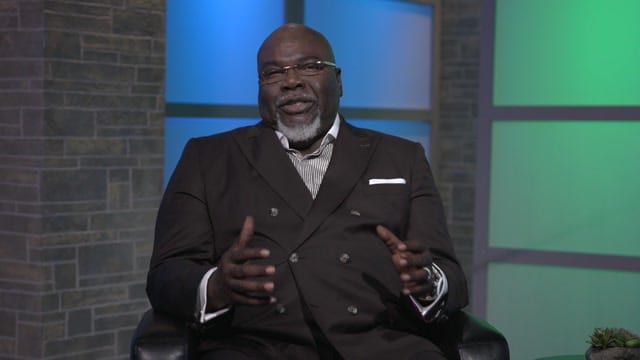
Bishop T.D. Jakes shares two ways he thinks about public communication and how to resonate with his audience.

Remember God is a journey to find God’s kindness in a season of life that isn’t kind. In this best-selling book, Annie F. Downs wrestles openly and bravely with God to find her way through disappointment.
WCA: In Remember God you said, “I see God first in stories, particularly the story I live every day.” How can you help us better see God first in our stories?
ANNIE F. DOWNS: I think it’s born in all of us to tell stories. Painters tell stories. Pastors tell stories. School teachers tell stories. It’s part of how we are created.
For me, the challenge isn’t whether you can tell a story. It’s can you zoom out of your life enough and pay attention enough that you can see the start, middle and end of the story you are living? One reason I love my job is I get to zoom out and look at my story and see what God is doing in my life. Journaling is the trick. It’s an opportunity for me to write down what I’m praying right now. The final step is to reflect. The way I do that is to go back to journals from one year before and then read back to that same day.
WCA: “Trust but verify” was a process you used as you listened to God. How did it help you to trust God more?
DOWNS: God wants to speak to us. God wants us to hear His voice. He wants to speak into what we’re going through. You have to start trusting yourself. Study Scripture if you want to hear his voice better, but also trust that you are able to hear him.
Then invite some other people into that message and see if they agree, especially if you’re making a big choice. I have two or three friends to whom I can say, “Hey, here’s something a little crazy, a little bit out of bounds. I’m not totally sure so I’m telling you in case I’m wrong and I didn’t hear this right.”
I think God really loves when we try. Hearing Him is a skill that needs to be practiced and developed, and trusted friends help that process.
Now the next step is, what if I’m wrong? I think the Lord is really going to honor that I’m trying to obey what I think is Him. If I’m wrong and I didn’t hear Him correctly, I think my accountability people are going to step in. I think God really loves when we try. Hearing Him is a skill that needs to be practiced and developed, and trusted friends help that process.
WCA: Thank you for sharing your experience with depression during a season of success. What is your top advice for those feeling like they are “going through the motions” even while succeeding?
DOWNS: Do not turn your back on your own suffering. You don’t just have to push through. You don’t just have to pretend like it’s not happening. You don’t even have to follow the line that if everything is going well I should be OK. Because that’s not always how it goes.
Unfortunately, in our emotional and spiritual lives, A+B doesn’t always equal C. I called it what it was. I said, “There is something really going on here. I’m in a lot of pain.” Once you call it what it is, you invite other people in and you can walk toward healing in a more effective way than just trying to tough it up and walk alone.
WCA: At first you said no to God’s “healing yes.” You eventually said yes. What have you learned about saying yes to healing and how can we encourage ourselves or loved ones to accept God’s healing?
DOWNS: For myself, when looking inwardly, it is very often that God walks me toward my weaknesses and toward my pain to take me where He wants me to go. I always thought that to become the leader I wanted to be, I had to bypass all my pain. What actually keeps being true is God leads me toward that pain in order to heal it and in order to make me a better Annie, a better leader and an all-around better human. Say yes because you want to be healthy but say yes also because the person you want to be is on the other side of that pain.
I always thought that to become the leader I wanted to be, I had to bypass all my pain. What actually keeps being true is God leads me toward that pain in order to heal it
If there are other people in your life in pain who need healing, there is nothing you can do but pray. When you pray, God moves. I know that sounds like a trite Christian answer, but the actual truth is everyone gets to decide for themselves when they get help. My counselor says, “Love others, but manage yourself.” So, I pray for my friends who are in pain or suffering or need counseling. I say, “OK God. I’m managing me, but loving him. What does it look like for me to love my friend really well?”
And what does that look like? For us, it looks like still being genuinely as close as the person will let you be in their lives while telling the truth of what you are experiencing with them. Then trust God to be the rescuer. We often think we are capable of rescuing people. We are the conduit that leads people to God, but He is the rescuer.
WCA: For those who aren’t familiar with the term “Selah”, can you explain what it means and how it affected your relationship with God?
DOWNS: King David used it in Psalms as a place to take a breath, as a place to settle into what was just said. It’s a place of rest and stopping. For me, especially when I was living the story that says remember God, I had to take a breath. I had to settle in. I had to believe in what I had just experienced and look forward to what God was going to do next.
It’s almost the moments of the highest pain or highest joy when I say, “OK, take a breath here. Settle in here. Don’t forget what just happened.” Whether that’s journaling it, taking a picture or telling a friend, we have to reflect because otherwise we forget. We forget who God is; we forget how He cares for us; we forget how He shows up for us if we just keep going to the next thing.
WCA: In Remember God you point out that we prepare our businesses, homes and even wardrobes for new seasons, but we don’t prepare intentionally in our spiritual life. Can you share strategies for Christians to better prepare for spiritual transitions?
DOWNS: It’s learned. It’s not intrinsic in us. It’s paying more attention tomorrow than you are paying today. Are you paying enough attention to what’s going on around you?
To me, what we see in nature is reflective of our spiritual life. I think God intends for us to notice nature and know that he’s doing it on our lives. There are times when it feels really dark. Well, what I know from nature is that morning always comes and that spring and summer always come.
Preparing for your next spiritual season can also be as easy as looking at your calendar. I know that I travel heavily until July 7 and then I’m done for the year. So, I know my season is going to change and I know there are things I can prepare for in what I want. I don’t have to spend a lot of time in prayer, I can just look at my calendar.
There are other times when you feel God is changing your life. You are getting married, you get a new job, you are pregnant. Whether you’re feeling something stirring in your life or you see something clearly on the calendar, ask yourself what you need to get ready for the next season. The longer your effort toward trying to see the season change and trying to honor God by getting in alignment with what he’s doing in life, the clearer it becomes.
WCA: You share that Celtic Christians described the Holy Spirit as An Geadh-Glas, which means “wild goose.” Many of us can relate to this metaphor. Would you please tell us how you learned to follow the Holy Spirit even when it felt like a wild goose chase?
DOWNS: Here’s what I would say to you: If you feel like what you’re hearing is crazy, keep going. Just go one more step into crazy. Again, invite other people in and make sure you are in a faith community with people you trust. Make sure you are spending time in the Word and compare it to what you are hearing. But in general, I just say go for it!
You’re going to land. You’re not going to fall forever. If you did this wrong, you’re going to land somewhere. Which is my story, right? That’s what happened in Remember God. I started falling and I didn’t land where I thought I would, but it turned out I landed during an incredible moment in the cathedral in Durham, England. I never would have seen it coming.
To me, I think life is just more fun if we follow the voice of God as best we can and let him get us into some adventures. I am never sorry when I get into an adventure with God, but I am sorry when I miss out. My advice is go! It changed me forever.
To learn more about remembering God, check out Annie F. Down’s book here.
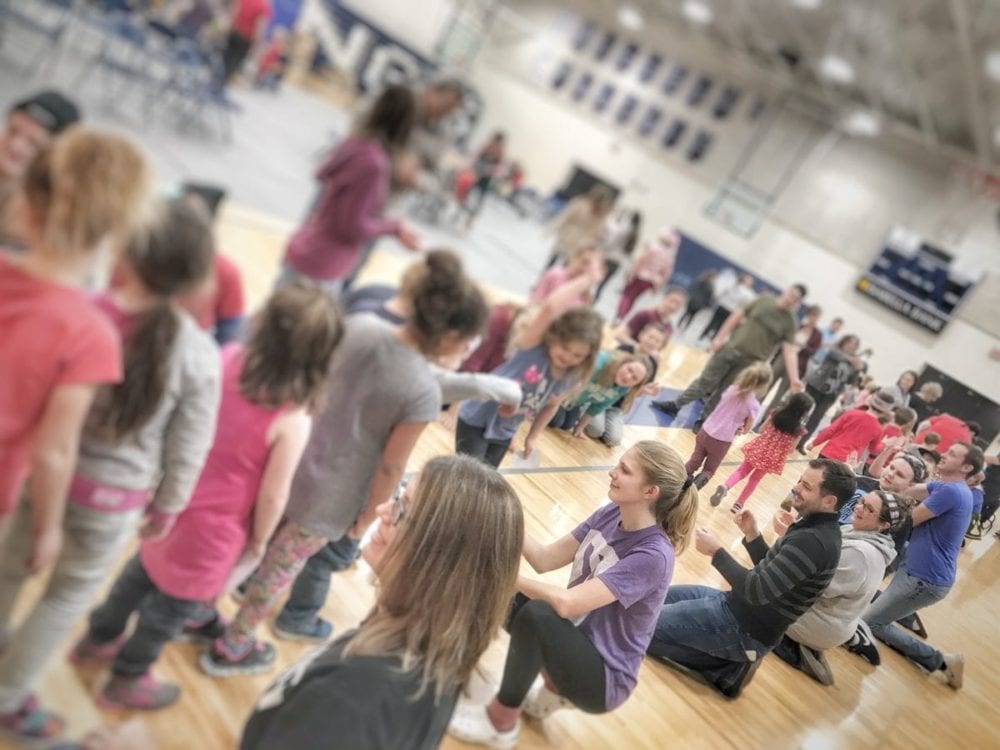
When we planted Thrive Church MI in 2013 in Central Michigan, our vision was to be a church for people who have given up on God and given up on church. As a church, we have a dream. We don’t want just to be in Central Michigan, we want to be for Central Michigan. If something went wrong and our church disappeared tomorrow, I hope our community would notice and flood social media with disbelief.
We don’t want just to be in Central Michigan, we want to be for Central Michigan
Attending and now hosting The Global Leadership Summit has helped cement our dream for our community and we are now building upon that dream.
I can remember sitting in my first Pastor’s Gathering for Summit host site leaders (an unbelievable training event) and going through the training. I kept thinking to myself, my team is going to love the Summit! I heard story after story about how the Summit is literally changing entire communities.
Up until that point, I just thought we were providing a top notch leadership training event for our community, which is great. But then it hit me, we are providing one of the most important opportunities for our community there is—this is a time to train, lift up and encourage the influencers and leaders in our community. They, in turn, will use their influence to lead positively and influence others to lead the change they hope to see in Central Michigan. What better way to be for the community? It was such a powerful moment!
Honestly, during the 2018 Summit I was exhausted.
Honestly, during the 2018 Summit I was exhausted. It had been a difficult year. I know coming out of the summer, I should have been ready to take on the next season, but we were about to walk into another fundraising campaign for something we started for our community called the Shoe Project, and I wasn’t sure I was ready for it.
At our local site, something started to happen. As he told his story and challenged us, our room went from teary eyed to weeping to ready to climb a mountain! Men and women were being inspired. And when he said, Greatness is on the other side of your pain, it was like we all experienced the same collective light bulb going off at the same time! And his talk lifted me! I was ready, and our team was ready with new vigor! We were lighter. We were ready. We were hungry to reach our communities!
And when he said, Greatness is on the other side of your pain, it was like we all experienced the same collective light bulb going off
There is a lot of poverty in Central Michigan. Many people don’t realize how hard it can be for some of our families to put food on the table every day, let alone buy a new pair of shoes for their kids to attend school. Our church sees this every day. So we wanted to come up with a way to serve the families in our community.
Our church decided to adopt an elementary school and buy every student a brand new pair of shoes. When we started approaching schools, they were over the moon with the idea! Here is a glimpse of the heart behind the Shoe Project.
In five years, we’ve been able to bless five schools by giving away over 2,200 pairs of shoes (worth $60,000+ dollars)! People from all over the country have helped us raise funds to do this. And the powerful thing about the Shoe Project is we’re just planting seeds.
 Yes, giving shoes to a 3rd grader who has never owned a brand new pair of shoes is amazing! So many teachers, principals and volunteers just start crying. They are especially moved by how we do it. We don’t just hand them out. We get on our knees to put the shoes on them. We make a big deal out of it. We read the card that’s been handwritten for them by a volunteer. It’s all very powerful. But the best part is, we’re planting seeds for generosity, for life, for care and for encouragement in our community.
Yes, giving shoes to a 3rd grader who has never owned a brand new pair of shoes is amazing! So many teachers, principals and volunteers just start crying. They are especially moved by how we do it. We don’t just hand them out. We get on our knees to put the shoes on them. We make a big deal out of it. We read the card that’s been handwritten for them by a volunteer. It’s all very powerful. But the best part is, we’re planting seeds for generosity, for life, for care and for encouragement in our community.
Just imagine if someday one of the 4th graders who received a brand new pair of shoes remembered how they felt and what that day meant to them. Imagine if the next TOMS Shoes idea is birthed by that 4th grader? The possibilities are endless when we’re for our community. Imagine the teacher who doesn’t give up. We’ve met teachers who were running on steam, but because of this moment of generosity, they found hope to keep going.
During our last Shoe Project, the principal called our local Fox News and reporters came down to capture this story. I stood in tears as I watched a 15-year teaching veteran tear up as he explained that the Shoe Project day was the best moment in all his years in education.
We started the Shoe Project for our community. But being a part of The Global Leadership Summit helped us expand our dream and the vision we have for the Shoe Project, and to make it global. In 2020, we’re headed to Swaziland, Africa to bless 450 kids with brand new shoes! I love that our dream and vision that has been expanded, and we’re so grateful for the inspiration of the Summit!
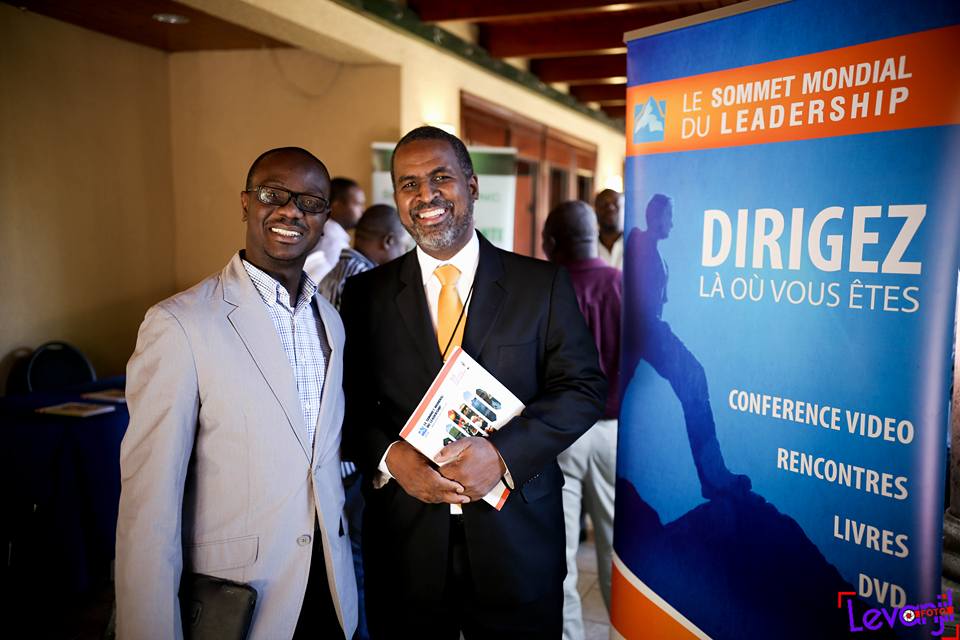
Every Tuesday and Thursday morning at 8:30 am CST, our staff gathers together to pray for our partners across the globe.
Please join us in prayer as we lift up the international Summit events happening this weekend. Pray for God’s anointing on every detail and that those who attend would leave feeling equipped, inspired and encouraged to lead the change they long for in their communities.
And if you have a prayer request, please share it with us. We would be honored to pray with you!
Leon, Nicaragua
Cap Haitian, Haiti
This training helps people, and helps leaders by encouraging them not to quit. It helps leaders by providing resources and insights. We hope people will continue to support the cause so we can create more sites and more people can enjoy and benefit from the great mission of the GLS.
Barueri, Brazil
Ilha do Governador, Brazil
Heliopolis Cairo, Egypt
In Egypt we live inside our Christian walls as a minority. At the Summit, it was the first time I saw walls break down and I had the feeling we can communicate with people outside the Church. Please pray for this event.
Asyut, Egypt
Ouaga, Burkina Faso
Hong Kong, Hong Kong
Tiruchirappalli, India
Port-au-Prince, Haiti
Orlando, United States
Londrina, Brazil
Lagos, Nigeria
Adrogua, Argentina
Bucaramanga, Colombia
The Summit is bringing insightful, intelligent people into the scene. I believe this is a key element for a transformation to take place. It’s a window of opportunity. The resources that are invested in the Summit can change a whole nation!
Santa Clara, Cuba
San Miguel, Peru
Mexicali, Mexico
Gothenburg, Sweden
Madrid, Spain
Victoria, Mexico
Coatzacoalcos, Mexico
Cordorba, Mexico
Ensenada, Mexico
Ciudad de Mexico, Mexico
Monterrey, Mexico
Queretaro, Mexico
Reynosa, Mexico
Tijuana, Mexico
Monclova, Mexico
Because of the GLS, I really believe things can change in Mexico. I can see that young leaders can have an opportunity to step up and lead the change our country needs.
Hubbali, India
Chennai – Central, India
Mussoorie, India
Maroysi, Greece
We need to encourage people in the market, government, schools and universities and everywhere people have a special role. Their role is not to just stay where they are, receive a salary and live life, but to serve people and to create new ethics. We need to encourage people to be servant leaders in society. We need to help these people make the best of their lives.
Port-au-Prince, Haiti
Ciudad Neily, Costa Rica
Bluefields, Nicaragua
Beira, Mozambique
Surulere, Nigeria

The strength of the organization is reflected by how deep into the organization people have the ability to say yes.
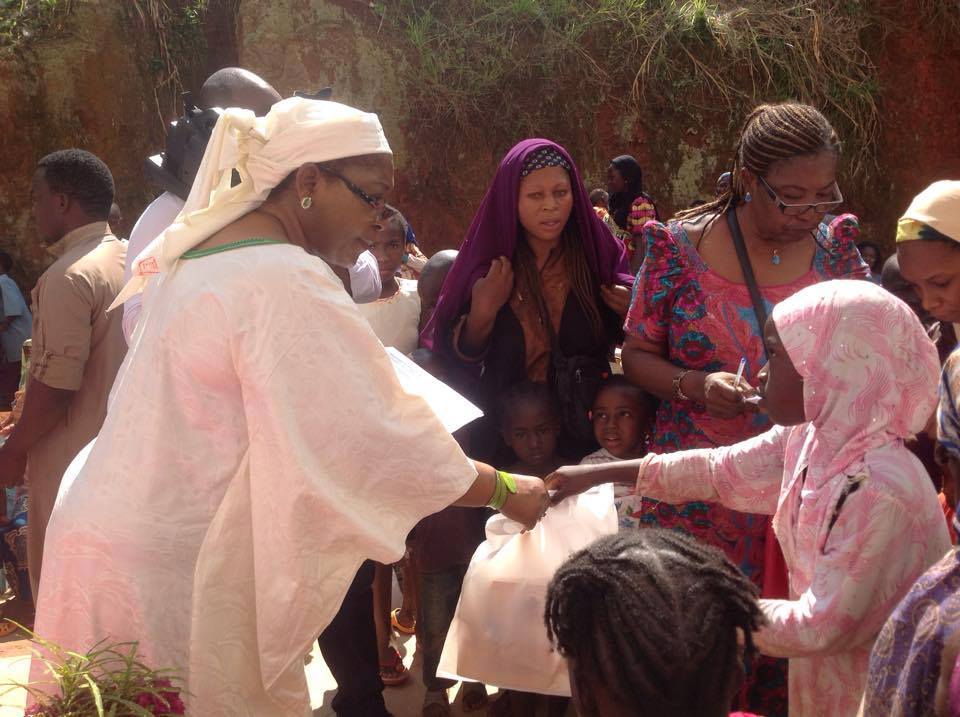
As the youngest in a family of 15 children, I had early practice in reaching farther, especially at dinner! No question, being in a big family poses a special challenge. Especially when that family turns its back on you.
I received an ultimatum: family or faith.
Twenty years ago, as a student in Nigeria, I came to know the Lord. My family in Cameroon didn’t like it. Not that they weren’t Christian—they are Catholic—but in that time and place, evangelicals were regarded as frustrated failures with nothing else to do.
And so, I received an ultimatum: family or faith.
I tried to make my family realize that no one can encounter God and turn away. That in forcing this choice, they were telling me to go with Him—and let go of them. So that’s what happened.
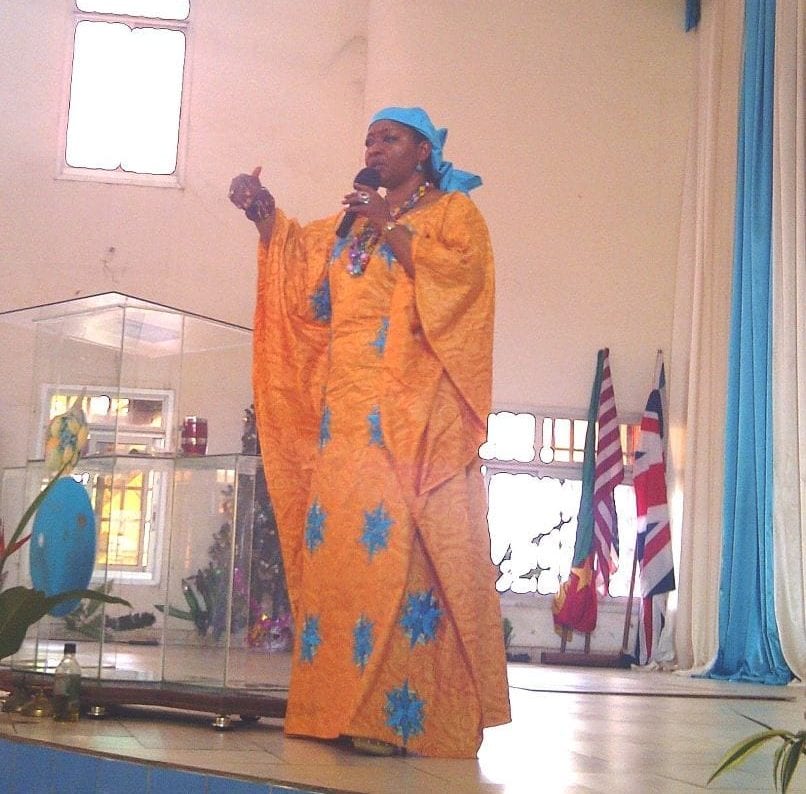 I returned to Cameroon with nothing but a God-given conviction that the Lord wanted me to start a ministry there. It drew me closer to Him, and to Scripture.
I returned to Cameroon with nothing but a God-given conviction that the Lord wanted me to start a ministry there. It drew me closer to Him, and to Scripture.
Building a church is no easy task, as many of you know. But from the start, I knew one thing I didn’t want: a group of followers. Instead, I wanted reach further by building a community of leaders.
The opportunity to do that came when I met a representative of The Global Leadership Summit from Nigeria who wanted to expand the GLS into neighboring Cameroon. As a result, my church became a Summit host site. I knew this was going to sharpen me. Not just me, but my church. This would give us a cutting edge in our community.
It’s the Summit’s top-level teaching that is so impactful, covering every area you can imagine, all in one package. The topics are so deep and so relevant, everything from developing determination to the true meaning of being a team player. I heard inspiring themes: the church is the hope of the nation when it’s working right. Everybody wins when the leader gets better. I received lots of training material I could take home to help grow new leaders.
I’ll never forget the first time I attended a Summit in Chicago. There were so many automobiles in the parking lot, hundreds and hundreds of them. My mind was blown, and I asked someone, in all seriousness: Is this a car dealership?
It wasn’t. But the Summit is a vehicle for those who want to reach further, by inspiring vision and igniting transformation all over the world. I know it stirred me to strive for excellence—and do something great for God.
 Every year that I come to the GLS, my soul is renewed, my vision is strengthened, and my passion just overflows. The confidence I’ve gained has helped me overcome those who scoffed at the idea of a woman pastor. It helped me overcome threats of violence after hoodlums threatened to burn down my church and kill me, because who was I to invade the domain of men?
Every year that I come to the GLS, my soul is renewed, my vision is strengthened, and my passion just overflows. The confidence I’ve gained has helped me overcome those who scoffed at the idea of a woman pastor. It helped me overcome threats of violence after hoodlums threatened to burn down my church and kill me, because who was I to invade the domain of men?
The Summit has helped me remain steadfast after taking what has been the most decisive step in my walk with God
And the Summit has helped me remain steadfast after taking what has been the most decisive step in my walk with God—becoming the first woman bishop in Cameroon.
The decision to assume that role wasn’t easy. Since coming home all I had known was fighting and hatred. But after a while some people—including members my own family—finally accepted me as a female Pentecostal pastor. Becoming a Pentecostal bishop would just throw me into a new set of battles—and I was tired, very tired. So, I declined.
Then church elders sent me a letter, saying they truly and urgently needed me. That night, I cried out to God. I said, Have mercy. I want to serve you, but let me just do what I am already doing.
But God wouldn’t leave it at that. He reminded me that all the struggle wasn’t about me at all, but about what I could do for others in His name.
It was about giving the hungry something to eat.
About helping the thirsty have clean water to drink.
About enabling kids to get an education.
And showing others how they can do the same.
For as the Lord says: Whatever you do to the least of my brothers and sisters, that you do unto me.
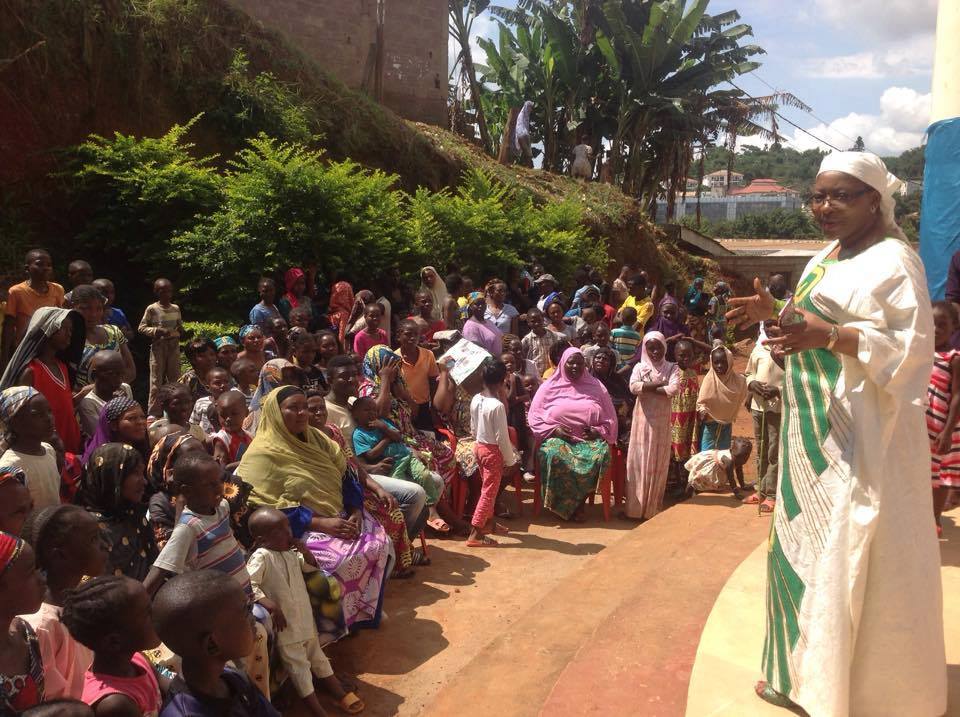 It took me back to my very first Global Leadership Summit—and the speaker who said: Identify a need in your community, and find out how you can meet that need.
It took me back to my very first Global Leadership Summit—and the speaker who said: Identify a need in your community, and find out how you can meet that need.
That realization changed everything for me, and broke the ice with those who, at first, could not understand what I—a woman preacher—was doing in their midst. Now people who once wanted to kill me say I am the mother of the community.
Now people who once wanted to kill me say I am the mother of the community.
That is personally gratifying, but the best moments come when people ask if they should accept the call of God. Many over the years—men and women alike—have joined the ministry, new leaders inspiring vision and igniting transformation as they go.
They ask what keeps me going—and what they will need to succeed. I tell them they must have conviction. For without it, they will never be able to carry out the will of God.
The church God enabled me to found is in Yaoundé, the capital of Cameroon, a city of two-and-a half million people. Its location is, I think, instructive, for we are right between the rich and poor. On one side of the road you see great affluence; while on the other, the level of poverty is heartbreaking. It’s very much a tale of two cities, a tale told again and again all over the world. For as Jesus said: the poor you will always have with you.
Still, I am optimistic. My passion is to leave a legacy in the hearts of people.
The question Christ poses for all Christians is: What are you going to do about it?
God helped me find some of the answers through The Global Leadership Summit and—by extension—what is now the Global Leadership Network. A network pouring back into our lives by helping us reach further to where human needs and spiritual rewards are greatest.
No doubt, there will be difficult days ahead. In my homeland, fighting among rival groups goes on. In the U.S., talk is of a nation more deeply divided than at any time since the American Civil War. Strife is a stubborn part of the human condition.
Still, I am optimistic. My passion is to leave a legacy in the hearts of people. Something that makes them think, redirect their lives and promote positive change.
The Global Leadership Network offers all of us that chance, pouring into thousands of lives and inspiring people everywhere—people like me—to serve God in their churches and communities, and by so doing, change the world. What a story, and what a legacy that is for an organization!
Thank you for being a part of that story—and that legacy. And thank you for giving me hope.

In this video, Marcus shares, the key to growing in business:
https://www.inc.com/marcus-lemonis/the-key-to-growing-in-business-is-growing-as-an-individual.html
I think the key to being good in business is listening to what people have to say. Really listening. We’re all trying to figure something out.
I think the key to growing a business is growing as an individual.
That starts with having stability with your family, stability with your friends and living your life right. It is making the choices that send a good message to your staff and send a good message to yourself about yourself.
Self-confidence is a very weird thing. If you lack it, it’s hard to build it. If you have it, it’s hard to not let it become ego.
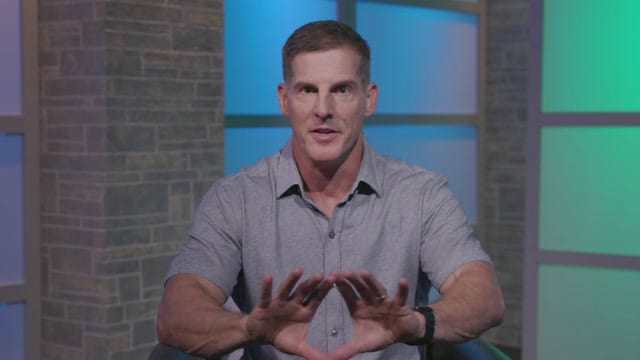
Craig Groeschel challenges leaders with practical ways to anticipate future threats and opportunities.
“We welcome and encourage comments on this site. There may be some instances where comments will need to be edited or removed, such as:
If you have any questions on the commenting policy, please let us know at heretoserve@globalleadership.org”
Recent Comments